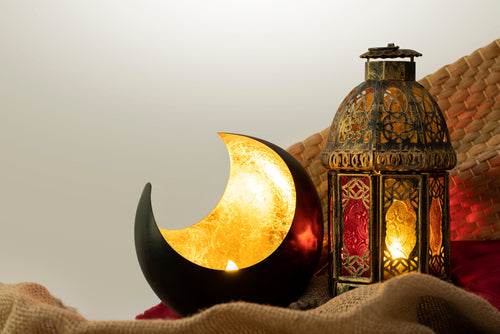
When is Ramadan 2025 and what is it?
Ramadan is the ninth month of the Islamic year, marking a celebration of fasting, prayer, and reflection.
In 2025, or 1446 of the Islamic Hijri calendar, Ramadan is expected to fall on March 1st, or 1 Ramadan, 1446. However, this is subject to slight change depending on the sighting of the moon.
Ramadan is a popular holiday celebrated in the Muslim community. It is a sacred time for prayer, worship, and abstaining from immoral acts. Today, Abaya Buth will explore Ramadan and its significance for Muslims worldwide.
What is Ramadan?
Ramadan, also known as the holy month, is the month of fasting and prayer.
This month lasts between 29 and 30 days, with the dates changing each year due to a deviation in moon sighting. As the Islamic calendar is based on the lunar cycle, Ramadan tends to shift forward by 11 days each year.
During Ramadan, Muslims remember and celebrate the revelation of the Qur’an, the holy
book, by the Prophet Muhammad (SAW). The night that the Qur’an was revealed is known as Lailut ul-Qadr, which translates to ‘the night of power’.
Ramadan is a fasting period during which Muslims abstain from drinking and eating. Every Muslim who is of age (around 14) and in good health joins in the fasting. This allows Muslims to connect closer to Allah and undergo spiritual rejuvenation.
The Act of Sadaqah
Muslims give Sadaqah, which includes charity toward others, whether in kindness, generosity, or faith.
This doesn’t always involve a physical or monetary donation to others but rather acts of kindness like a smile, offering encouraging words, or providing a helping hand.
Baab As-Sadaqah is one of the 8 gates of Jannah. When Muslims give charity to others, they serve Allah and are granted access to this gate.
Why is Ramadan Significant?
Ramadan includes fasting, which is one of the five pillars of Islam and is required by every Muslim to participate in every year (as long as they are healthy and of age to do so).
The act of fasting, prayer, and worship leads to more strength and compassion for oneself and others, from which their good deeds are multiplied by Allah during this time. Increased worship and Qur’an recitation help to develop a better understanding of teachings and deepen one's faith.
This is a time for Muslims to gain some self-control over bad habits, putting more effort into avoiding negative acts like lying, cheating, gossiping, and arguing.
From this, Muslims work on their morality, taking time to self-reflect and adjust their actions to please Allah, aiming to achieve good and start afresh.
How is Ramadan Celebrated?
During Ramadan, Muslims celebrate all of the blessings in their lives, such as access to food, water, and good health. Daily fasting encourages mindfulness and gratitude, allowing us to focus on the things we take for granted.
Those excluded from Ramadan due to an inability to participate include the sick, pregnant or nursing women, young children, and elderly people.
In the UK, fasting hours start at 5:00 a.m. and end at 6:00 p.m., gradually increasing as the month progresses.
The celebration of Ramadan includes:
- Fasting (Sawm): From dawn (Fajr) to sunset (Maghrib), Muslims avoid eating and drinking. The pre-dawn meal, known as Suhoor, is shared by families early in the morning to gain energy for the day. At sunset, the fast is broken with Iftar.
- Worship and prayer: Worship and prayer intensify, with Muslims reading and reciting the Qur’an, praying, and devoting good acts to Allah. Taraweeh (special nightly prayers) are performed at home. The final 10 days of Ramadan, Laylat al-Qadr, include additional prayer and reflection.
- Acts of charity: During Ramadan, Muslims show more generosity and care for others, donating food. This includes giving Zakat (obligatory charity) and Sadaqah (voluntary charity) to help those in need.
- Sharing meals: Families, friends, and communities gather for Iftar, where the fast is broken and meals are shared.
- Connecting with the Qur’an: Muslims recite and study the Qur’an in more detail, completing it during the month. Many may also attend Quranic lectures and study sessions.
- Self-improvement: Muslims strive to do better for others and themselves, making improvements in their behaviour and sticking with them after Ramadan has finished.
- Community spirit: The community comes together in acts of celebration, charity, and worship. Many mosques host prayers, activities, lectures, and events.
- Eid al-Fitr: At the end of the month, the festival of Eid al-Fitr is celebrated to mark the end of the fast. This involves feasting, gift-giving, and spending time with loved ones. Many families dress in their newest Ramadan attire for the occasion.
Key Dates in Ramadan 2025
The following key dates to remember for Ramadan 2025 are as follows:
March 1st 2025/ 1 Ramadan 1446: The first day of fasting, prayer, and reflection.
March 26th 2025/ 27 Ramadan 1446: Laylat al-Qadr, the night of power, involving prayer, reflection, and seeking forgiveness.
March 30th 2025/ 1 Shawwal 1446: The festival of Eid al-Fitr, celebrating the breaking of the fast.
These dates are subject to change due to slight deviations in the sighting of the moon.